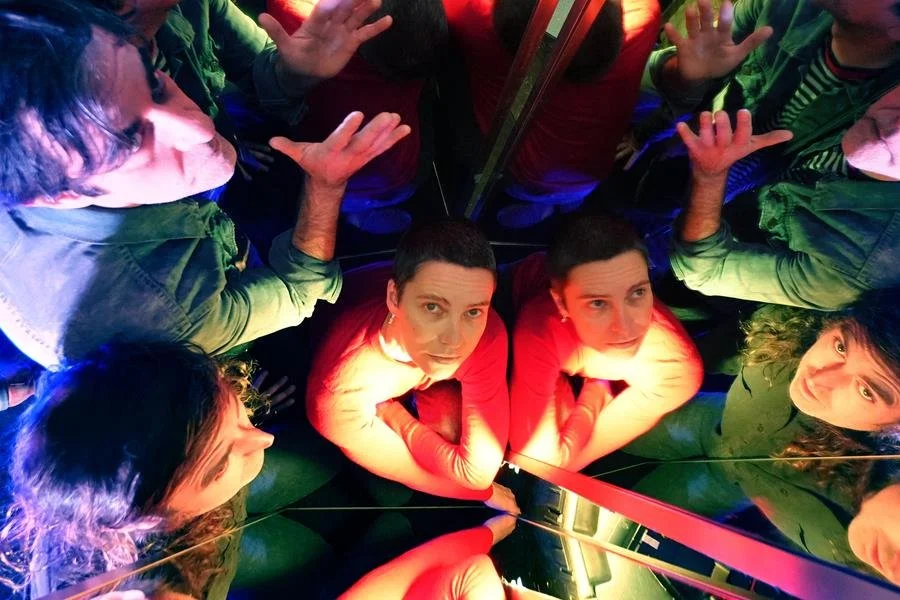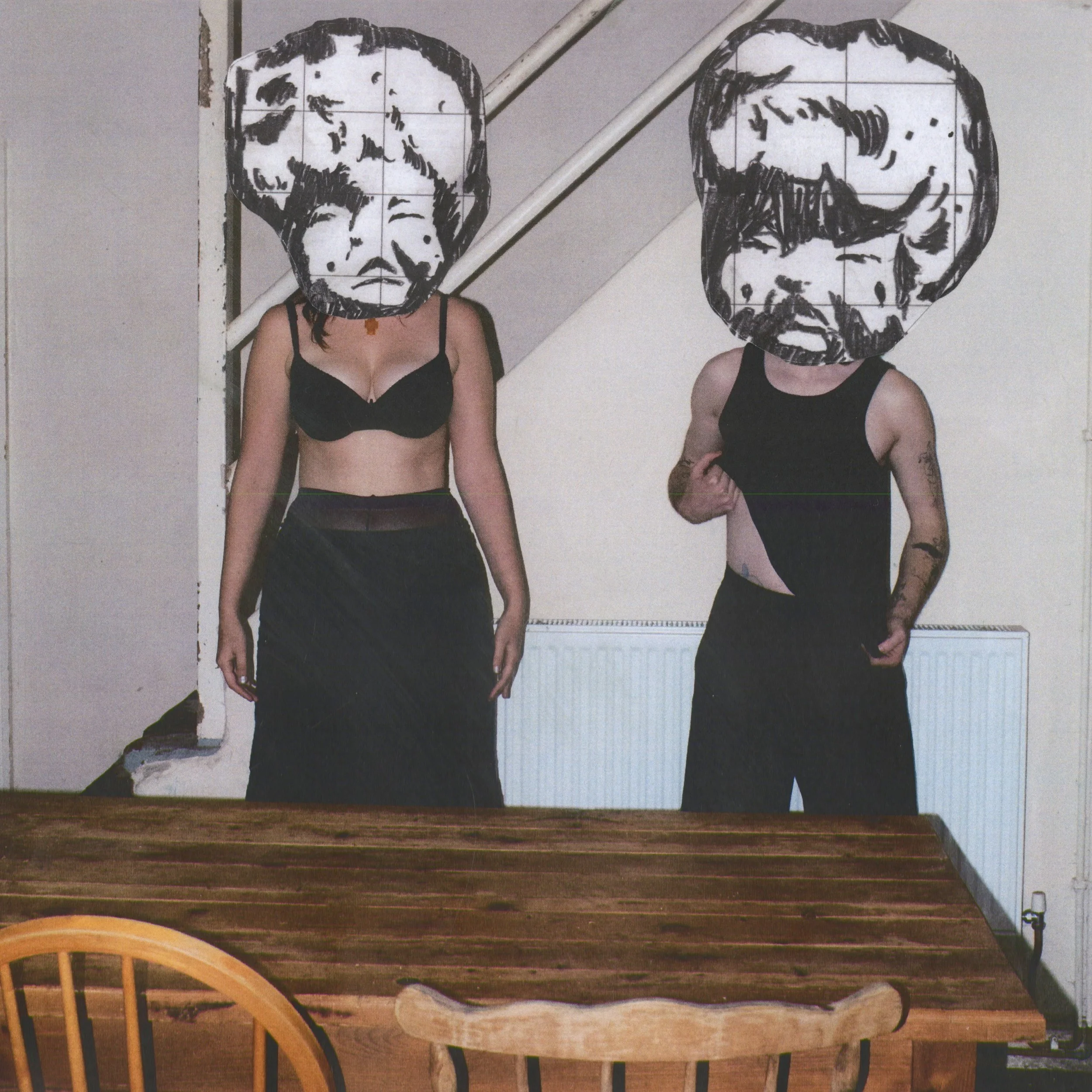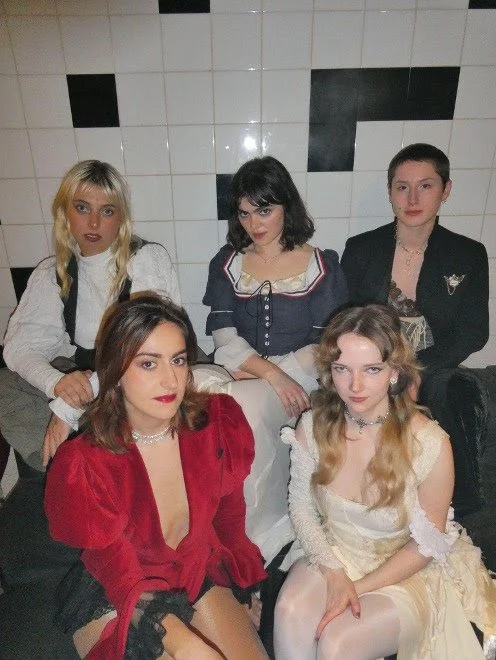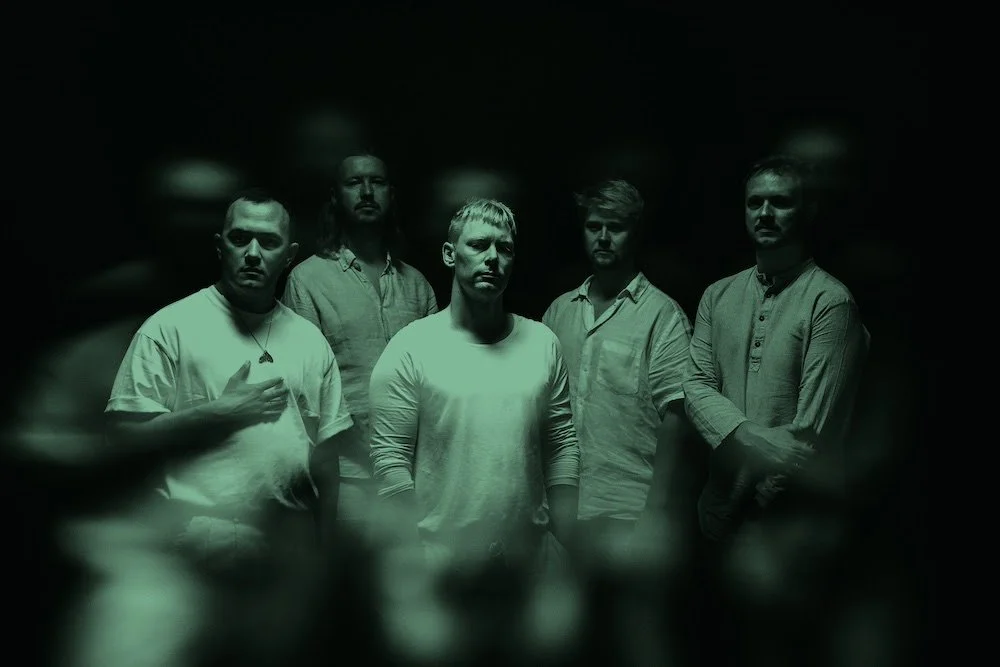Album Review: Yard Act- 'Where's My Utopia?'
“We’ll outgrow it like any other band worth their salt”, declared Yard Act frontman James Smith when asked by NME what he thought of his band being pigeonholed as ‘post-punk’.
He made this defiant statement in January 2022, as he and his bandmates- bassist Ryan Needham, guitarist Sam Shjipstone, and drummer Jay Russel- were on the brink of releasing their critically acclaimed debut album ‘The Overload’, which would go on to reach number two in the UK charts, narrowly missing out on the top spot after a good-humoured chart battle with Years & Years. While post-punk might’ve been a somewhat reductive description of the Leeds quartet, it’s easy to see why it was so widely used: ‘The Overload’ was a record which skewered modern Britain with wordy delight, its jagged guitar lines and sardonic, spoken-word character studies vividly recalling iconic Northern post-punk bands such as Gang of Four and The Fall.
Now, with sophomore LP ‘Where’s My Utopia?’, Smith and co. have made good of their promise, delivering a second record which represents a huge leap forward for the band- both musically and lyrically. Where Smith dissected the world around him circa 2022, here we find him looking inward. Opener ‘An Illusion’ sees Smith imagine a washed-up future self: “I was hot property once, but now the promise is gone/ Because the roots were all rotted from the start”, he laments, before rewinding to the present day, where he tries to convince himself to “just take the plane James/ It’ll take off regardless”. It’s a striking portrait of his current frame of mind, digging into the inevitable contradictions of being critical of capitalism, whilst simultaneously enjoying its benefits in a successful band. Musically it begins with a snappy shuffle, underpinned- as so many Yard Act tracks are- by a bouncy bassline, before the song goes somewhere different entirely with its dreamy chorus and pleasing guitar bends, rounding out with strings and an array of backing vocalists. It’s a very different opener to the sarcastic stomp of ‘The Overload’, and one which showcases the considerable growth of the band in just two short years.
As if looking to reassure some listeners that this is indeed still Yard Act, the track segues into the knowing ‘We Make Hits’, a wonderful slice of disco-punk which wittily examines the band’s rise to fame (“Post-punk’s latest poster boys”) and subsequent creative direction: “There was one singular ambition we had/ That most musicians of our ilk aren’t willing to admit/ And it was to this mantra that we would commit/ We make hits”, grins Smith over Needham’s funky bassline, in what feels like a togue-in-cheek throwback to some of the lighter moments on ‘The Overload’. Lead single ‘Dream Job’ also shares some similarities with their debut LP, but takes things in a decidedly dancier direction with its dryly upbeat chorus. “Welcome to the future/ the paranoia suits ya”, sings Smith so melodically that you wonder if you’ve stumbled into an alternative universe where Talking Heads wrote ‘Club Tropicana’. “Class! Sweet! Deece! Not bad!” he exclaims over some ridiculously catchy keys and synths. The faux delight is brilliantly funny, and the song is genuinely danceable as well, which surely has a lot to do with Remi Kabaka Jr of Gorillaz being on production duties.
It's not all fun and games, though. ‘Down by the Stream’ finds Smith recounting a childhood memory (or, if not, an incredibly detailed fiction) in which he bullies a boy called Jono. “He spoke a little slow and I was a prick about it [..]/ Bullied him before he found his feet here/ Cause, cause, well I don’t know why/ But I did and I’ve gotta live with it”, he reflects in a movingly blunt admission. “Jono, I never said sorry to your face, so I’ll say it in this song/ I was young but more so I was wrong”. It’s the kind of emotional introspection which only really cropped up during ‘Tall Poppies’ on ‘The Overload’, but which finds its way into many of the songs here, including next track ‘The Undertow’, a string-heavy exploration of how it feels to leave your family at home while you pursue your dreams. “What’s the guilt worth?” asks Smith repeatedly, in an impassioned singalong which wouldn’t sound out of place on Pulp’s ‘His N Hers’.
Second single ‘Petroleum’, meanwhile, is a rhythmic odyssey full of hypnotic guitar hooks and a frantic techno outro, the perfect backdrop for Smith to express that “My bones burn/ And the brain that’s controlling them/ Knows that the soul needs petroleum”. ‘When the Laughter Stops’ is at once a darker and more vibrant update, a dance-punk belter featuring Katy J Pearson on a deliciously melodic earworm of a chorus, one which contrasts eerily with the fragile nature of the lyrics (“You dry your eyes at the gate to hide the struggling”). ‘Fizzy Fish’ and ‘Grifters Grief’ both start with moody baselines before opening up into something more aggressive, but it’s the final one-two of ‘Blackpool Illuminations’ and ‘Vineyard For The North’ which leave a lasting impression.
The latter closes the album in a similar lyrical fashion to ‘100% Endurance’ on ‘The Overload’- an acknowledgement that, despite everything going on in the world, hope and human spirit remain. Musically it’s a trance-like slow burn that ends up as a subtle yet euphoric dance anthem, all layered harmonies as Smith accepts that “we’re at the mercy of the storm clouds now”. Before this, though, is the seven-and-a-half minute ‘Blackpool Illuminations’, a presumably autobiographical (“Are you making this up?/ “Some of it, yeah”) recital of a childhood trip to Blackpool, on which a six year old Smith badly hurt his lip after falling off a radiator pipe, losing childhood curiosity and innocence in the process. The song comes full circle as Smith reveals he and his wife recently took their son to Blackpool, and ends with a line which perfectly sums up the album’s themes of responsibility and ambition, and how hard it can be to balance the two: “I attained perfection with you, I attained perfection/ So why the fuck was I still wondering what wankers would think of album two?”. This wanker thinks it’s an extremely impressive artistic progression, from a band destined to create.
Words by Ben Left












